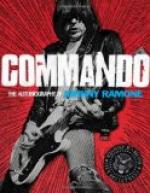As I arrived rather late on the battlefield, I cannot give any account of the order in which De la Rey placed his men, neither do I know the number of the enemy’s dead and wounded, nor how many lives our victory cost us. I have never seen any official report concerning this battle. Field-Cornet Van Zulch, who with Commandant Boshoff, took the officers to Machadodorp, and who is at present a fellow-prisoner, tells me that three officers—Colonel Roberts, Lieutenants Davis and Lyall—and 210 soldiers of the Lincolnshire Regiment were taken prisoners, and that four companies of the Scots Greys had early that morning escaped with two guns. Our loss, both dead and wounded, was not more than thirteen or fourteen men. The enemy had made a stubborn resistance, judging from the number of dead and wounded that were lying on the field. Of the seven of us who forced the enemy to surrender by attacking them in the rear, not one was injured, although we were the attacking party. They say that the khaki prisoners whom we left on the reef remained there all night, and came down the following morning with little white flags made of the bandages that a soldier always carries with him, tied to twigs.
VI
Guerilla life on the Magalies mountains—narrow escape of President Steyn and general de wet.
Commandant Boshoff had been ordered to take the prisoners to Machadodorp. He left my brother and me with Captain Kirsten, who had to reconnoitre in the direction of Rustenburg along the Magalies Mountains. We first of all passed through Commandonek, and found that deserted by the enemy. We had no adventures on our way to Rustenburg.
The Rustenburgers, who had nearly all laid down their arms and taken the oath of neutrality, took courage when they saw De la Rey’s big commando, and joined us one and all.
Then we recognised a great fault in the character of our people. Without the slightest compunction, they first fail in loyalty to their own country, and then break the oath of neutrality, although the enemy had in no single respect violated their part of the contract. Some of them we, in a way, forced to join us, as we took the guns and horses of the unwilling ones or of those who acted at all in a suspicious way. We also called them traitors. But most of the burghers joined us of their own free will. Many had not taken the oath of neutrality, as they had been beyond the reach of the enemy; others had, after Lord Roberts’ threatening proclamations, ridden over to the enemy to give up their arms, but had given up their old rifles and kept the Mausers for ‘eventualities,’ to use the now historical word of Sir Alfred Milner.
A few of the oath-breakers tried to excuse themselves by the Jesuit plea that either they did not mean what they swore or else they had purposely changed the form of the oath. In judging those who broke the oath of neutrality later on, we must remember that the enemy did not keep to their part of the contract, and so our men were justified in considering it as null and void, and, according to William Stead, their forcing us to take the oath of neutrality was against the Geneva Convention. But it is too difficult a question for me to discuss.




